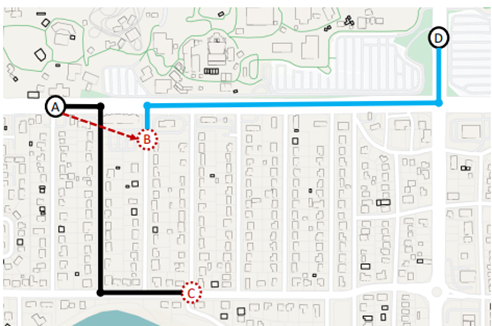Advantages:
- Identifies Wi-Fi spoofing attacks by leveraging Doppler Effect and Symbol Timing Offset (STO) variations
- Protects against location manipulation, ensuring accurate navigation even in high-risk environments
- Improves navigation accuracy by differentiating legitimate and spoofed signals
- Cost-effective implementation with off-the-shelf Wi-Fi chips
- Seamlessly integrates with existing GPS and Wi-Fi navigation systems
Summary:
Urban navigation systems increasingly rely on Wi-Fi-based localization to complement GPS, making accuracy and security critical. While effective, Wi-Fi localization systems remain vulnerable to spoofing attacks where attackers broadcast manipulated signals to mislead users. Traditional spoofing methods often fail in dense urban areas due to multiple legitimate access points (APs). However, attackers can bypass this by using more "designated APs" to outnumber legitimate signals without resorting to jamming, which can raise detection risks. This poses significant challenges for navigation-dependent industries, such as ride-sharing, logistics, and autonomous vehicles.
Our innovative solution leverages the Doppler Effect and Symbol Timing Offset (STO) to distinguish legitimate APs from spoofed signals, even when attackers are in the same vehicle. Real-world testing using Raspberry Pi 4 demonstrated significant STO variations for legitimate signals from outside the vehicle, validating the approach. By utilizing off-the-shelf Wi-Fi chips, this cost-effective solution enables real-time spoofing detection without specialized hardware, seamlessly integrating with existing navigation systems and enhancing security in dense urban environments.

An attack example: the victim is at location A and its destination is at location D; The spoofer sets the localization result of the victim device from A to B and forces the navigation system to generate a new route B → D (blue line). By following the navigation trajectory, the victim arrives at location C along route A → C (black line) in the physical world.
Desired Partnerships:
- License
- Sponsored Research
- Co-Development